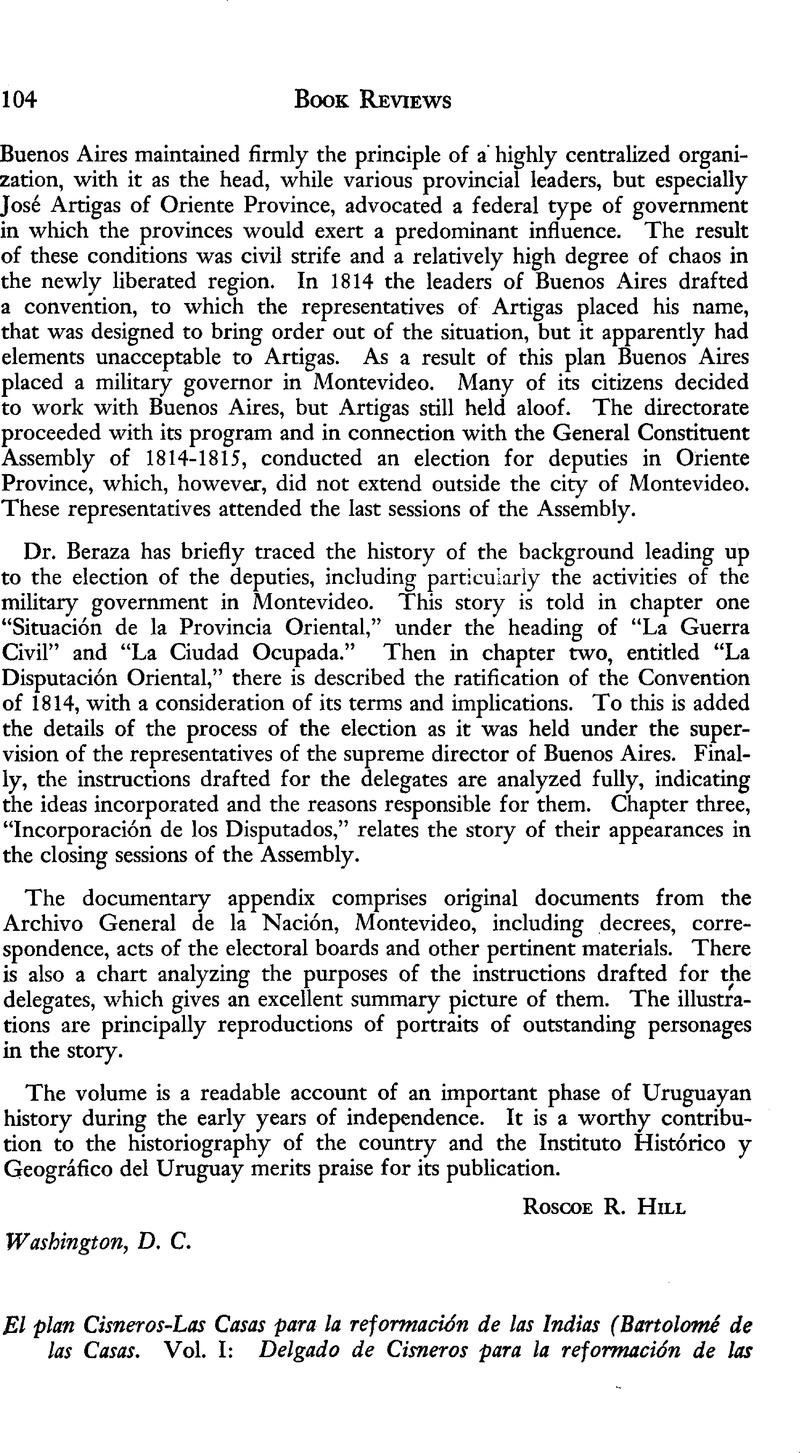No CrossRef data available.
Published online by Cambridge University Press: 11 December 2015

1 In confirmation of what we have said, independently of the enormous literature anti- or pro-Las Casas, but in the realm of facts, it will be sufficient to recall the incident that happened among the Hispanic-American delegates at the Congress of Americanists at Seville in 1935, or, at the present time, the rupture of an old friendship of two historians “because of Las Casas ….”
The figure of Las Casas is today, without doubt, the most studied of all the personalities of the colonial period. Among the different authors who have studied or are studying the Dominican friar in our times, must be numbered Millares, Hanke, Bataillon, Cano, Leturia, Ortiz, Yáñez, O’Gorman, González Calzada, etc.
2 A similar revision but of other aspects of the history of continental and American Spain was undertaken by Professor Joaquin Xirau in several studies. He died in Mexico in 1946; his works are only partially published. This same revisionist tendency is followed by a group of university professors, Spanish and non-Spanish, and covers all fields of history. To quote only an example, we may mention the book of Vicente Llorens of Princeton University, on Romanticism and the Spanish emigrés of 1823.